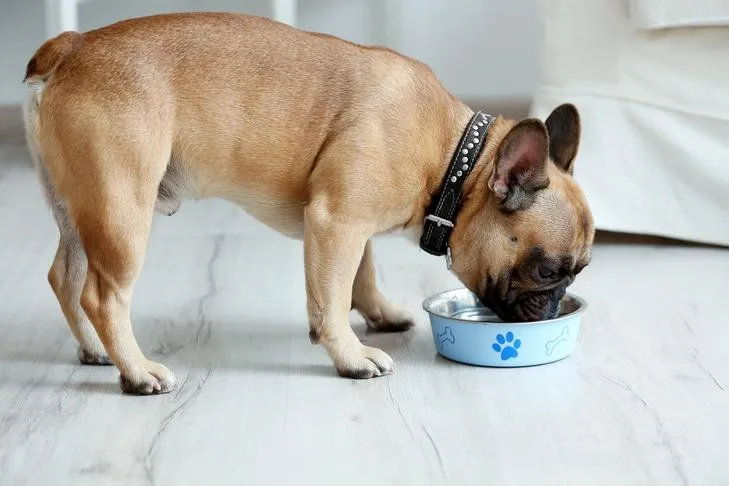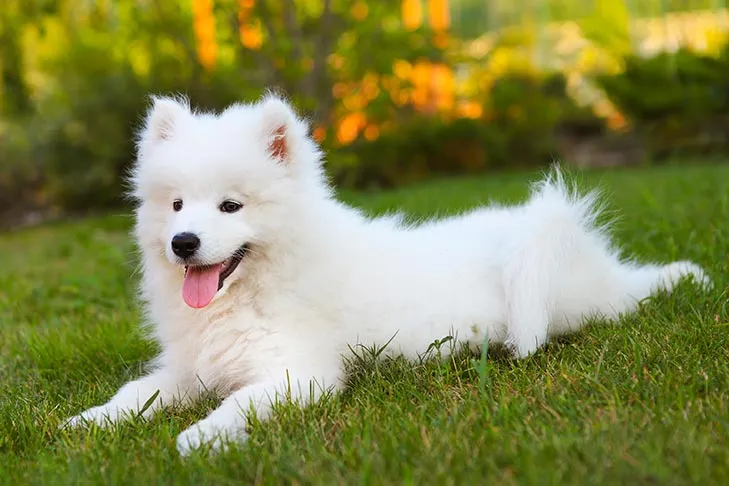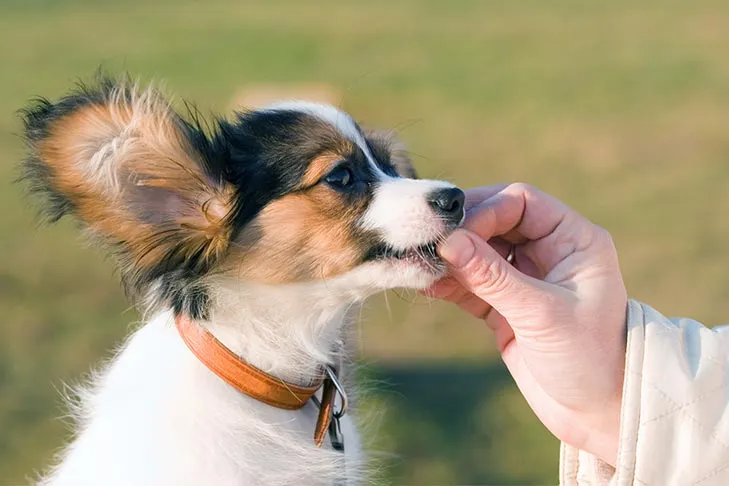Sharing food with our beloved canine companions is a common expression of affection, but it’s crucial for every dog owner to understand that not all human foods are safe for them. While some table scraps can offer nutritional benefits and make excellent treats, others can be highly toxic, leading to severe illness or even death. Navigating your dog’s diet requires careful consideration and knowledge to ensure their health and well-being. This comprehensive guide provides a clear List Of What Dogs Can And Cannot Eat, empowering you to make informed decisions and keep your furry friend safe. Understanding what should you feed a dog is paramount for responsible pet ownership, and always consulting your veterinarian for personalized dietary advice is recommended.
Human Foods Dogs Can Safely Enjoy (in Moderation)
Many human foods can be healthy and delicious additions to your dog’s diet when offered responsibly and in appropriate quantities. These items should always be plain, cooked, and free from seasonings, oils, or any potentially harmful ingredients.
Lean Meats & Fish
Cooked, lean protein sources are often a safe and beneficial treat for dogs. They provide essential amino acids and can support muscle health.
- Chicken and Turkey: When fully cooked, boneless, and skinless, plain chicken or turkey can be an excellent source of protein. Ensure all bones are removed, as cooked bones can splinter and cause internal damage.
- Salmon and Sardines: These fish are rich in omega-3 fatty acids, which promote healthy skin, coat, and brain function. Salmon must be thoroughly cooked to eliminate parasites, and all tiny bones should be removed unless they are soft, digestible sardine bones. Limit fish intake to once or twice a week.
- Pork: Lean, cooked pork without excessive fat or seasonings can be given in moderation. It’s a highly digestible protein source.
- Shrimp: Fully cooked and completely shelled shrimp (no tail, head, or legs) can be a low-calorie, nutrient-rich treat, packed with antioxidants and vitamin B-12. If you’re wondering what normal food can dogs eat to supplement their diet, lean meats and fish are often good choices.
Dairy & Eggs
Certain dairy products and eggs can be suitable for dogs, provided they don’t have lactose intolerance.
- Cheese: Small to moderate amounts of low-fat cheese, such as cottage cheese or mozzarella, can be a tasty treat. However, some dogs may be lactose intolerant, so introduce it slowly and observe for any digestive upset.
 A playful, intelligent All American Dog rests its head on a kitchen counter, gazing intently at a small piece of cheese.
A playful, intelligent All American Dog rests its head on a kitchen counter, gazing intently at a small piece of cheese. - Yogurt: Plain, unsweetened yogurt containing live active cultures can be beneficial for your dog’s digestive system due to its probiotic content. Avoid yogurts with added sugars or artificial sweeteners like xylitol.
- Eggs: Fully cooked eggs are a fantastic source of protein, vitamins, and minerals. They can even help soothe an upset stomach. Never feed raw egg whites, as they can interfere with biotin absorption. When considering what type of food can puppies eat beyond their specialized kibble, cooked eggs in small portions can be a beneficial addition.
Fruits & Vegetables
Many fruits and vegetables offer vitamins, minerals, and fiber.
- Corn: Corn kernels (off the cob) are a common ingredient in many dog foods and provide nutrients. However, the cob itself is a choking hazard and can cause intestinal blockages.
- Coconut: Coconut meat, oil, and milk contain lauric acid, which may help combat bacteria and viruses. It can also aid with bad breath and certain skin conditions. Always remove the fibrous outer shell to prevent choking or intestinal issues.
- Pumpkin: Plain, cooked pumpkin (not pie filling) is excellent for digestive health due to its high fiber content and can help with both diarrhea and constipation.
- Sweet Potatoes: Cooked and plain sweet potatoes are a healthy source of dietary fiber, vitamins, and minerals. Ensure they are unseasoned.
Nuts & Grains
When prepared correctly and given sparingly, some nuts and grains are safe.
- Peanut Butter: Raw, unsalted, and xylitol-free peanut butter is a popular and excellent source of protein, healthy fats, and vitamins B and E. Always check labels carefully for xylitol, which is highly toxic to dogs.
- Peanuts: Unsalted, plain peanuts can be a good source of healthy fats and protein, but should be given in moderation to avoid excessive fat intake, which can lead to pancreatitis. Avoid salted varieties.
- Cashews: A few unsalted cashews can provide calcium, magnesium, and antioxidants. Like other nuts, they are calorie-dense, so offer sparingly to prevent weight gain.
- Quinoa: This grain is found in some high-quality dog foods and offers a strong nutritional profile, serving as a healthy alternative to corn, wheat, and soy.
- Wheat or Grains: Grains like wheat and corn are perfectly fine for most dogs and provide essential fatty acids and fiber. Only avoid them if your dog has a diagnosed allergy.
- Popcorn: Air-popped, unsalted, and unbuttered popcorn can be a treat in moderation, offering riboflavin, thiamine, iron, and protein. Ensure all kernels are fully popped to avoid choking hazards.
- Bread: Small amounts of plain, unspiced bread without raisins are generally harmless, but offer no significant nutritional benefits. Homemade bread is preferable to store-bought varieties with preservatives.
Other Safe Treats
- Honey: Small amounts of local honey may help dogs with seasonal allergies by gradually exposing them to pollen. Honey is also rich in various nutrients and can be used topically for minor cuts and burns.
 A charming French Bulldog thoughtfully eats from a bowl, savoring its meal at home.
A charming French Bulldog thoughtfully eats from a bowl, savoring its meal at home.
Dangerous Human Foods Dogs Must Avoid
Knowing which foods are toxic or harmful is critical to preventing serious health emergencies. Always keep these items out of your dog’s reach and contact your veterinarian immediately if you suspect your dog has ingested something dangerous.
Highly Toxic Foods
These foods can cause severe illness, organ damage, or even death, even in small quantities.
- Chocolate: Contains theobromine, which is toxic to dogs. Dark chocolate and baking chocolate are the most dangerous. Symptoms include vomiting, diarrhea, tremors, seizures, and heart problems.
- Grapes and Raisins: Can cause acute kidney failure in dogs, even in small amounts. The exact toxic substance is unknown, but the effects can be devastating.
- Xylitol: This artificial sweetener, found in sugar-free gum, candies, baked goods, certain peanut butters, and some medications, is extremely toxic. It causes a rapid release of insulin, leading to a life-threatening drop in blood sugar (hypoglycemia) and liver damage.
- Onions, Garlic, Chives, and Leeks: All members of the Allium family contain compounds that can damage a dog’s red blood cells, leading to anemia. Garlic is particularly potent. Symptoms may not appear for several days.
- Avocado: Contains a substance called persin, which can be toxic to dogs in large quantities, especially the pit and skin. While some argue the flesh is less harmful, it’s best to avoid it.
- Alcohol: Even small amounts of alcohol can cause severe intoxication, respiratory failure, coma, and death in dogs. Keep all alcoholic beverages and foods containing alcohol away from pets.
- Coffee and Caffeine: Contains stimulants that can be toxic to dogs, leading to restlessness, rapid breathing, heart palpitations, muscle tremors, and seizures. This includes coffee beans, grounds, tea, and energy drinks.
- Macadamia Nuts: Can cause weakness, vomiting, tremors, hyperthermia, and depression in dogs. The exact mechanism of toxicity is unknown, but symptoms can be severe.
Foods That Pose Other Risks
While not always immediately toxic, these foods can cause significant health problems.
- Cooked Bones: Cooked bones become brittle and can splinter, posing a severe choking hazard or causing internal injuries, perforations, or blockages in the digestive tract. Raw bones also carry risks of bacterial contamination and tooth fractures.
- Fat Trimmings and Cooked Fat: Excessive fat, whether raw or cooked, can lead to pancreatitis, a painful and potentially life-threatening inflammation of the pancreas.
- Salty Foods: Large amounts of salt can lead to sodium ion poisoning, causing vomiting, diarrhea, tremors, seizures, and even death. Avoid giving dogs chips, pretzels, or other heavily salted snacks.
- Sugary Foods and Artificial Sweeteners (excluding Xylitol): While not immediately toxic (unless they contain xylitol), excessive sugar can lead to obesity, dental problems, and potentially diabetes in dogs.
- Dairy Products (in excess): Many dogs are lactose intolerant to varying degrees. While small amounts of cheese or yogurt may be fine, larger quantities of milk or other dairy can cause digestive upset like diarrhea and vomiting.
- Raw or Undercooked Meats and Eggs: These can contain harmful bacteria such as Salmonella and E. coli, which can cause severe food poisoning in dogs. Raw eggs also pose a risk of biotin deficiency over time.
- Yeast Dough: Raw yeast dough can expand in your dog’s stomach, causing painful bloating and potentially a life-threatening condition called bloat (gastric dilatation-volvulus). The yeast fermentation also produces alcohol, leading to alcohol poisoning. If your dog has an upset stomach, knowing what to give sick dog to eat or, more importantly, what to avoid, can be life-saving. For specific concerns, like if you’re wondering what can i give my dog to stop eating poop, it’s always best to consult with a vet to rule out nutritional deficiencies or behavioral issues.
 A joyful Samoyed puppy lies peacefully in a lush green lawn, enjoying the outdoors.
A joyful Samoyed puppy lies peacefully in a lush green lawn, enjoying the outdoors.
General Feeding Guidelines for Your Canine Companion
Beyond knowing the list of what dogs can and cannot eat, responsible feeding involves adhering to some general principles:
- Introduce New Foods Slowly: When introducing any new human food, start with a very small amount and monitor your dog for any adverse reactions like digestive upset or allergies.
- Always Consult Your Veterinarian: If you have any doubts about a specific food or your dog’s dietary needs, always consult your veterinarian. They can provide tailored advice based on your dog’s age, breed, health conditions, and activity level.
- Portion Control is Key: Even safe human foods should be given in moderation as treats, not as meal replacements. They should make up no more than 10% of your dog’s daily caloric intake to prevent nutritional imbalances and weight gain.
- Read Labels Carefully: Always check the ingredients list of any processed human food before offering it to your dog, particularly for hidden sugars, salts, or artificial sweeteners like xylitol.
- Keep Toxic Foods Out of Reach: Store all dangerous foods in secure containers or places inaccessible to your dog. Educate all family members about what foods are harmful.
 A charming Papillon puppy gently takes a small treat from a human hand, showcasing its delicate manner.
A charming Papillon puppy gently takes a small treat from a human hand, showcasing its delicate manner.
Conclusion
Understanding the comprehensive list of what dogs can and cannot eat is a fundamental aspect of responsible dog ownership. While the joy of sharing food with your pet is undeniable, prioritizing their health and safety by knowing which foods are beneficial and which are dangerous is paramount. A dog’s primary diet should always consist of high-quality, balanced dog food, with safe human foods offered only as occasional treats. Always consult with your veterinarian for personalized dietary guidance to ensure your furry family member thrives. Make informed dietary choices and continue to explore more resources on dogcarestory.com to enrich your dog’s life!
References
- American Kennel Club (AKC) – Various articles on dog nutrition and safe/unsafe foods for dogs.
- Veterinary medical journals and professional organizations (e.g., AVMA – American Veterinary Medical Association) – For information regarding food toxicities and canine nutrition.


 A charming French Bulldog thoughtfully eats from a bowl, savoring its meal at home.
A charming French Bulldog thoughtfully eats from a bowl, savoring its meal at home. A joyful Samoyed puppy lies peacefully in a lush green lawn, enjoying the outdoors.
A joyful Samoyed puppy lies peacefully in a lush green lawn, enjoying the outdoors. A charming Papillon puppy gently takes a small treat from a human hand, showcasing its delicate manner.
A charming Papillon puppy gently takes a small treat from a human hand, showcasing its delicate manner.